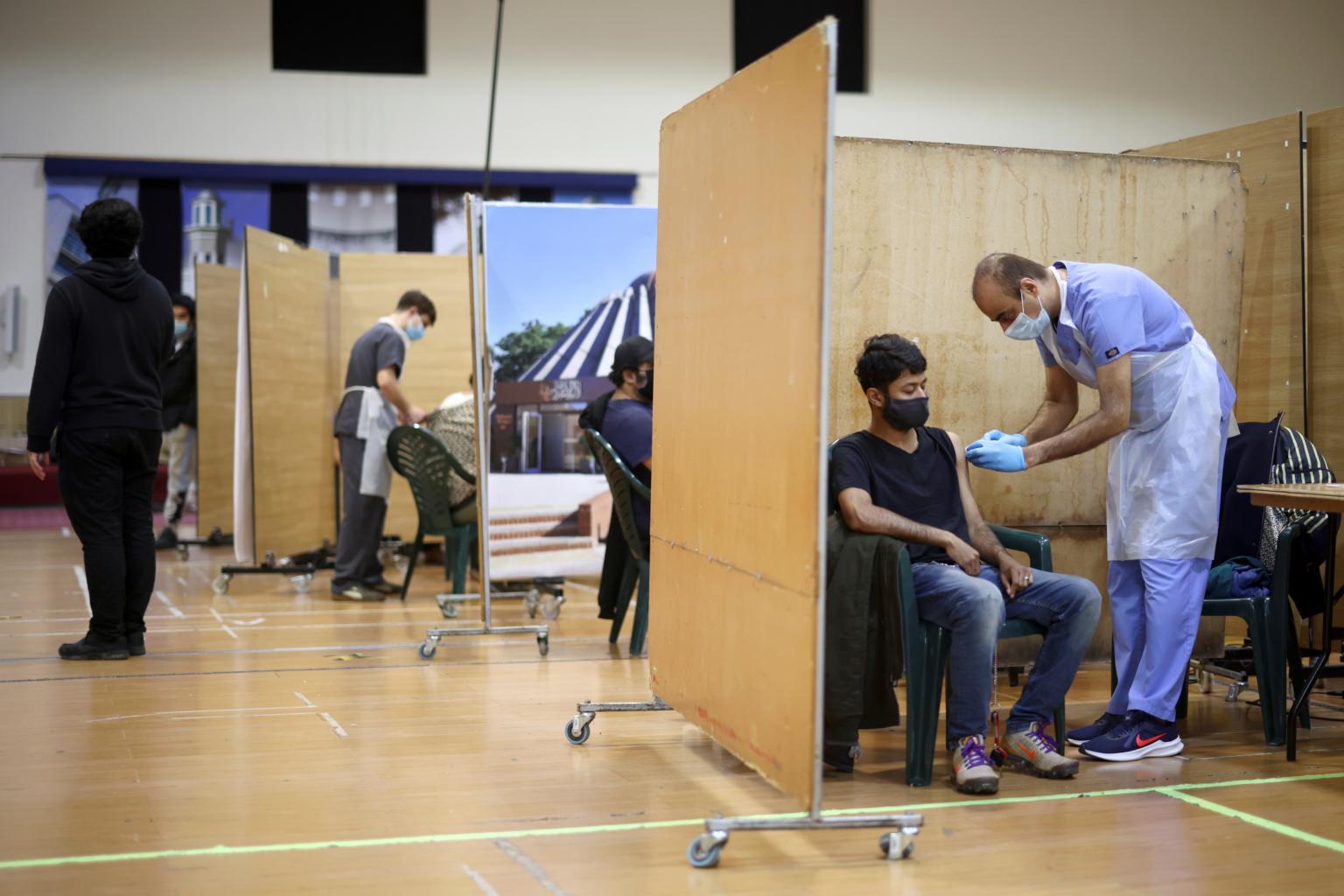US, Britain agree on importance of global Covid-19 vaccine roll-out to end pandemic
Sign up now: Get ST's newsletters delivered to your inbox

Both countries agreed on the need for a global roll-out of the vaccine to end the coronavirus pandemic.
PHOTO: REUTERS
LONDON (REUTERS, AFP) - British Prime Minister Boris Johnson and US Secretary of State Antony Blinken agreed on the need for a global roll-out of Covid-19 vaccines to end the coronavirus pandemic, Downing Street said on Tuesday (May 4) after the pair met in London.
"The Prime Minister and Secretary Blinken agreed that the global roll out of vaccines will be key to defeating the coronavirus pandemic," Mr Johnson's office said in a statement.
"They underlined the importance of G-7 work in this area, including efforts to increase international manufacturing capability."
Britain is using its presidency of the Group of Seven (G-7) rich Western nations to also highlight the need to prepare for future pandemics in light of the devastating consequences of the coronavirus crisis. It last week said it would host a summit next year to raise funds for vaccine research and development to support the international Coalition for Epidemic Preparedness Innovations (Cepi) seeking to speed up the production of shots for future diseases.
The G-7 democracies will discuss coronavirus vaccines on Wednesday as they face growing pressure to share stockpiles and know-how with poor nations trailing far behind on fighting the pandemic.
Foreign ministers of Britain, Canada, France, Germany, Italy, Japan and the United States are wrapping up three days of talks in central London that will set the agenda for a G-7 leaders' summit next month in Cornwall, southern England. The final sessions will also bring in development chiefs and address global challenges including the Covid-19 pandemic and climate change.
"A really valuable part of the G-7 format is to think in the round - what do we need to do to help the most vulnerable countries around the world?" British Foreign Secretary Dominic Raab told reporters.
Wealthy nations have put an emphasis on Covax, a UN-backed programme meant to share vaccines with the poorest nations. But rich nations have also effectively elbowed out Covax in the early stages, striking their own deals with drug manufacturers and taking the overwhelming share of the more than 1.2 billion doses of Covid-19 vaccine that have already been injected worldwide.
Mr Raab stressed the importance of Covax but said there was an additional question of "what we do about surplus domestic supply". The issues are "a really good opportunity for the G-7 together with our Indo-Pacific partners to talk all of that through and come up with positive answers", he said.
The United States has promised more than US$4 billion (S$5.3 billion) to Covax - far more than any other country - and said last week it was urgently shipping more than US$100 million in Covid relief supplies to India.
The United States has promised more than US$4 billion (S$5.3 billion) to Covax - far more than any other country - and said last week it was urgently shipping more than US$100 million in Covid relief supplies to India.
But US President Joe Biden's administration has sidestepped calls to relax intellectual property rules to allow cheaper vaccines, voiced by activists as well as India - itself a major vaccine manufacturer.
Secretary of State Antony Blinken, who is taking part in the talks in London, last month promised that the United States would soon be in a position to supply vaccines overseas following a successful campaign at home. In a preview of the discussions, Mr Blinken said at the time that his country would insist on "core values" in vaccine distribution - in implicit contrast to China.
"We won't trade shots in arms for political favours. This is about saving lives," Mr Blinken said.
Many US oliticians have agreed that making vaccines more widely available throughout the world is a necessity to end the pandemic and foster economic recovery.
In remarks to a Council of the Americas conference on Tuesday, US Trade Representative Katherine Tai said a lot of work lies ahead.
"That includes making the vaccine widely available and addressing the global inequity in vaccine access," she said. "This is not just a public health requirement. Our economic recovery depends on it."
Ms Tai is due to discuss demands from developing countries for a World Trade Organisation waiver of intellectual property rights on coronavirus vaccines during a WTO General Council meeting later in the week.
But activists say that the US and other wealthy nations need to do far more.
Former British prime minister Gordon Brown, who led the wider G-20 in 2009 during the global financial crisis, called this week for immediate action from the G-7.
"I say to the G-7... you have the power and the ability to pay for nearly two-thirds of the costs and secure a historic breakthrough by agreeing an equitable burden-sharing formula," he said.
In addition to immediate shortfalls, the world needs another US$35-45 billion next year to ensure that most adults around the world are immunised, according to the World Health Organisation.


